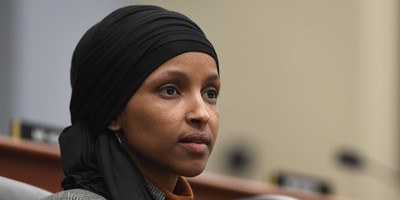Ever since the 2008 campaign, many voters, and some journalists, too, have felt they know Barack Obama's life story. In fact, the story they know is the one Obama told them.
Obama's first memoir, "Dreams From My Father," published in 1995, has become the semiofficial record of his life. But it is not the complete record of his life. It's partially fictionalized, with composite characters who Obama has always acknowledged were created to make the story read better. It focuses on a few themes Obama wanted to present to the public about himself. And, as with any memoir, it is told completely from Obama's point of view. It's not a biography.
Next month the beginnings of an Obama biography will be published, by former Washington Post reporter David Maraniss. Readers wanting to learn about Obama's entire life will be disappointed to discover that Maraniss stops when Obama is age 27, as he finishes work as a community organizer in Chicago and heads to Harvard Law School. Obama's law school years, his practice of law in Chicago, his campaigns and career as an Illinois state senator, U.S. senator, presidential candidate -- none of that will be covered.
Still, an excerpt of the Maraniss book published recently in Vanity Fair reveals a portrait of Obama that might have enriched the voters' understanding of him in the 2008 campaign, when many Americans were eager to learn about this new, fresh face in politics.
Recommended
The excerpt focuses on Obama's brief time in New York after his graduation from Columbia University. The son of a Kenyan father and an American expatriate mother, Obama emerges as a man questioning whether he viewed himself, or wanted to be viewed by others, as an American. Not in a citizenship sense -- Obama was born in the United States and that was that -- but in the sense of how he saw the world and wanted to be seen by it.
Obama had a lot of Pakistani friends; Maraniss writes that if Obama and his girlfriend socialized as a couple, "it was almost always with the Pakistanis." Obama appeared to identify with his friends as fellow non-Americans. "For years when Barack was around them, he seemed to share their attitudes as sophisticated outsiders who looked at politics from an international perspective," Maraniss writes. "He was one of them, in that sense."
But Obama was ambitious. Appalled by the "dirty deeds" of "Reagan and his minions" (as he wrote in "Dreams From My Father"), Obama became increasingly interested in, as Maraniss writes, "gaining power in order to change things." He couldn't do that as an international guy hanging around with his Pakistani friends; he needed to become an American.
So he did. One of those Pakistani friends, Beenu Mahmood, saw a major change in Obama. Mahmood calls Obama "the most deliberate person I ever met in terms of constructing his own identity," according to Maraniss. The time after college, Mahmood says, "was an important period for him, first the shift from not international but American, number one, and then not white, but black."
Mahmood, Maraniss writes, "could see Obama slowly but carefully distancing himself as a necessary step in establishing his political identity as an American."
Years later, the picture of Obama as a young adult wondering whether or not he was really an American was precisely the image that the Hillary Clinton campaign wanted to impose on the middle-aged Obama. In internal memos, top Clinton strategist Mark Penn questioned Obama's "lack of American roots," writing that "Obama's roots to basic American values and culture are at best limited. I cannot imagine America electing a president during a time of war who is not at his center fundamentally American in his thinking and in his values."
Clinton didn't come out and say that during the campaign, but she did everything she could to present herself as the all-American candidate in the race. Her campaign didn't play Tom Petty's "American Girl" at all her rallies for nothing.
In the general election, the contrast between Obama and John McCain was, of course, even more stark. At the age Obama was wondering whether he was an American, McCain, the son and grandson of U.S. Navy admirals, was a newly commissioned officer at Naval Air Station Pensacola, headed for a noteworthy military career. It seems unlikely McCain spent much time musing on whether he was an American.
In the end, as the Maraniss excerpt has it, Obama chose to become an American in part because that's what he needed to be to accomplish his goals. The story of what he did after that momentous decision will, unfortunately, have to wait for another biography.

























Join the conversation as a VIP Member